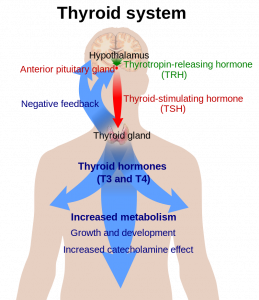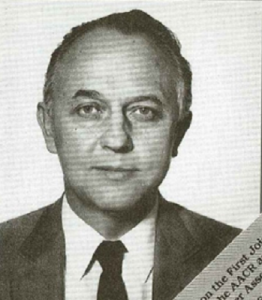
Selenium is an essential micronutrient. We need only small quantities of it, but we do need selenium as a component of the amino acid selenocysteine. We need the selenocysteine, in turn, for the body’s synthesis of 25 identified selenoproteins that have a variety of biological functions [Bellinger].
The following outcomes are some of the health benefits associated with adequate selenium intake and status [Ventura]:
- Reduction of the risk of cancer
- Enhancement of thyroid function
- Protection against oxidative damage
- Enhancement of immune system function
- Detoxification and elimination of mercury
- Slower progression of HIV infections to AIDS and death
- More resistance to opportunistic infections
Selenium and thyroid function
The thyroid is the small butterfly-shaped gland at the base of our necks, just above our breastbones. For such a small gland, the thyroid gland is very important. When it is healthy, it produces the hormones that regulate many bodily functions:
- the body’s metabolism rate
- the body’s heart function
- the functioning of the digestive system
- the body’s muscle control
- the brain’s development
- the maintenance of good bone health
Diseases inhibiting thyroid gland function
The most prevalent diseases of the thyroid gland are the following [Iddah]:





